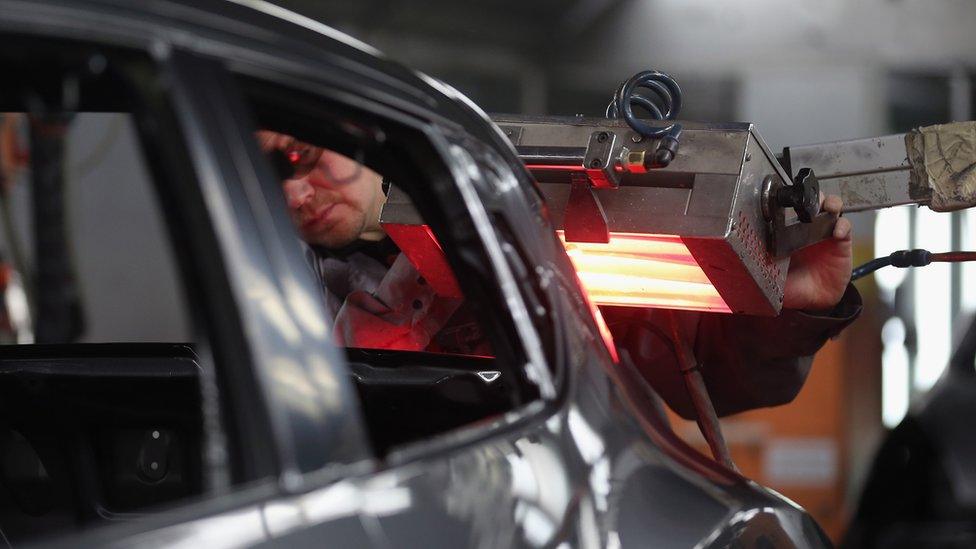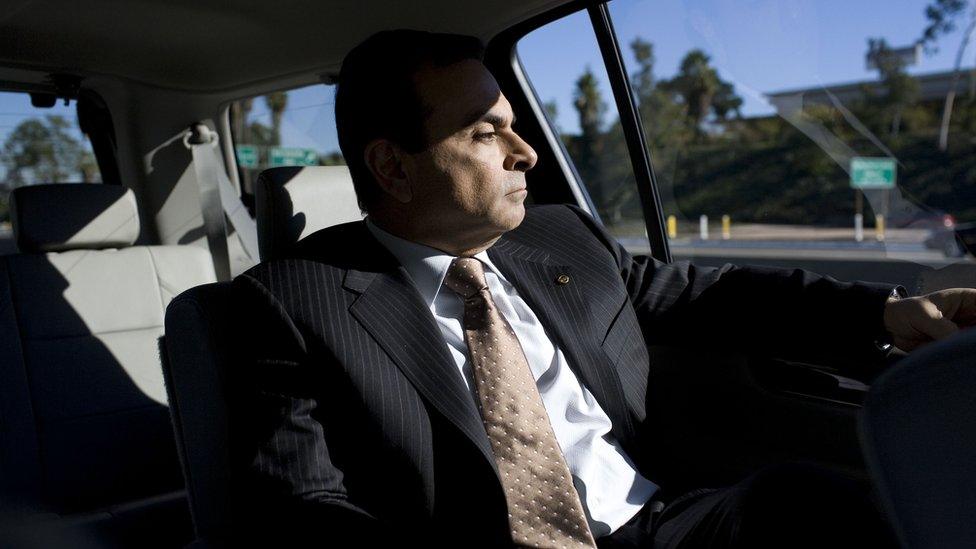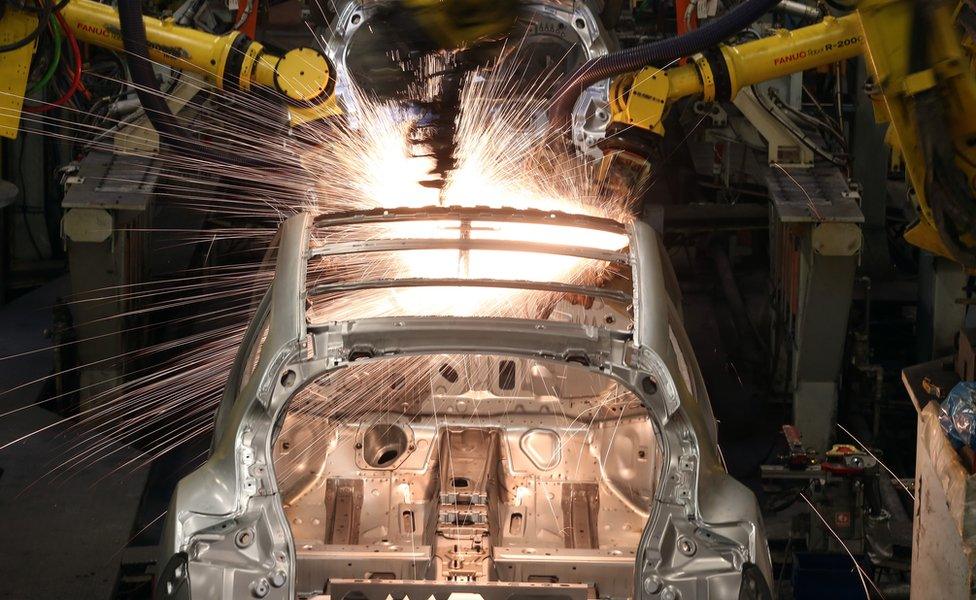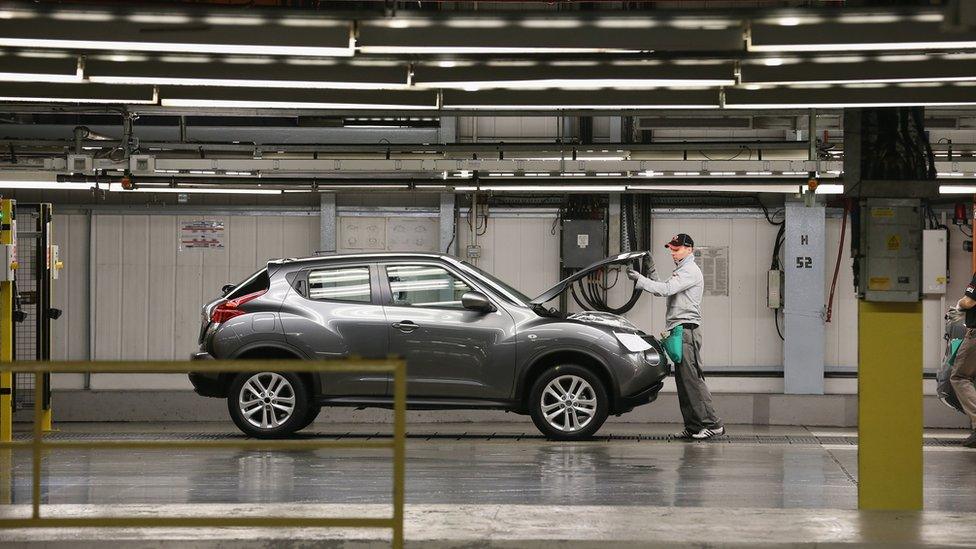Looming Brexit headache for Nissan’s Sunderland plant
- Published

Nissan's car manufacturing plant in Sunderland is the UK's largest, producing 500,000 vehicles a year. But it could face a crunch point for investment as soon as next year, sources tell BBC Newsnight, as a result of the uncertainty following the vote to leave the European Union.
The question is how Sunderland, which employs nearly 7,000 people, stacks up against other plants in the Renault-Nissan Alliance while the details of the UK's future trading and customs arrangements with Europe remain unclear.
The Franco-Japanese group makes its plants bid against each other to win significant new production contracts, with Sunderland facing stiff competition from Renault plants in continental Europe.
Nissan has previously said that future investment in the UK will depend on a "number of important factors, including the UK's trade and tariff negotiations with the European Union" - a message reiterated by chief executive Carlos Ghosn in comments to the BBC last week.
However, sources have told Newsnight that this presents a looming issue for Sunderland.

The result of the EU referendum could make life more complicated for Nissan boss Carlos Ghosn
Bidding is expected towards the end of next year or in early 2018 for the latest model of the Qashqai, Nissan's popular "crossover" vehicle. The new model would be slated for launch in 2020.
It seems unlikely that the UK will have finalised its trading arrangements with the EU within that time frame.
So under those circumstances, would Sunderland even be able to bid to build the latest Qashqai model? Or would the plant have to include potential trade tariffs into its calculations, driving up the costs of its bid?
The worry is that Sunderland could effectively be handicapped when it comes to the process of bidding for new work, referred to by one source as a "beauty competition". Uncertainty over tariffs is particularly significant, given that about 80% of Sunderland's production is exported.

The Sunderland plant makes 500,000 vehicles a year - the majority for export
The Qashqai is hugely important for Sunderland. It accounts for about 60% of the plant's output, and is the biggest car made in the UK by volume, according to industry body the Society of Motor Manufacturers and Traders.
Nissan said on Tuesday that it was company policy not to comment on its new model allocation process.
Carlos Ghosn, chief executive of Renualt-Nissan, last week told the BBC that he is "reasonably optimistic" the UK will remain an important partner for Europe, once trade negotiations are completed.
But he also warned that investment decisions were effectively on hold, until there is more detail on the likely trade and customs arrangements post-Brexit.
Nissan has already committed to building an upgraded model of the current Qashqai in Sunderland. That will go into production next year, and will introduce semi-autonomous driving technology into the cars for the first time.
But the question mark over how Sunderland can compete for future work with rivals in Spain or France demonstrates how the uncertainty surrounding the UK's post-Brexit relationship with Europe could impact investment - particularly in sectors like the car industry, where big spending decisions are made several years ahead of a product's launch.

The Juke is one of the models made at Nissan's Sunderland plant
Unite, the trade union, on Tuesday told Newsnight that the Sunderland plant was "one of the most efficient and productive in the Nissan/Renault global family".
It added: "Central to the continuing success of the UK car industry is continued access to the single market with zero tariffs - ensuring we safeguard decent jobs and investment for the future."
Nissan, whose operations support close to 40,000 UK jobs in its own facilities and through its dealerships and supply chain, said ahead of the June referendum that its preference was that the UK voted to stay within the EU. Despite that, 61% of people in Sunderland backed Brexit in the vote.
Since the referendum, the manufacturer has said it is "working closely" with the government, but warns that "it is in the interest of the businesses and people of the UK that a resolution is reached as soon as possible" in trade and tariff talks with the EU.
Those in Sunderland, eyeing the bid to build the latest Qashqai next year, would surely agree.
Helen Thomas is business editor for BBC Newsnight